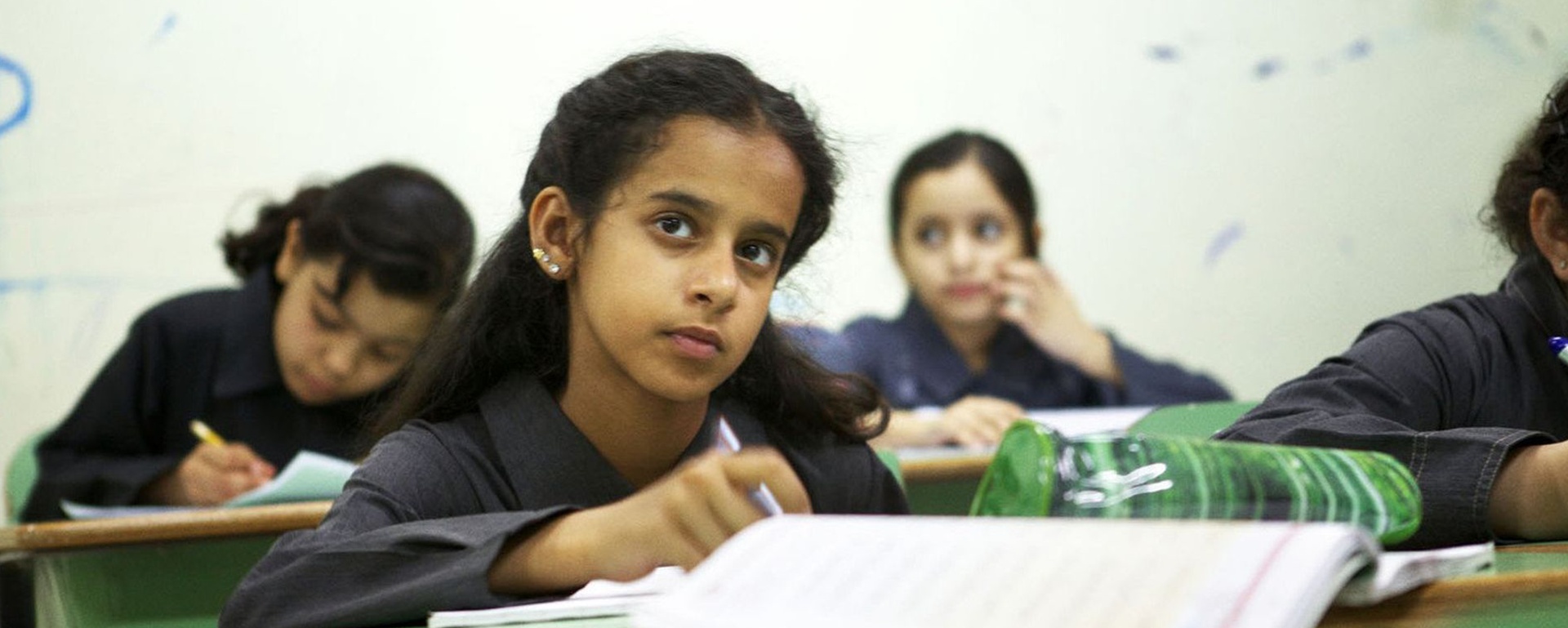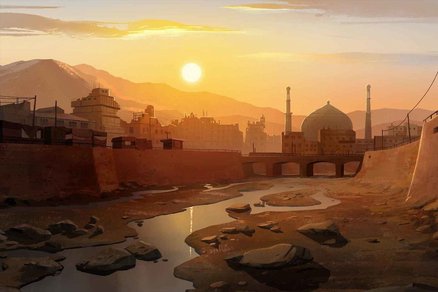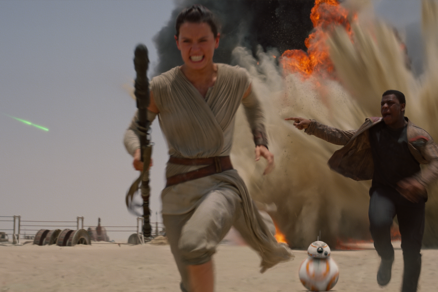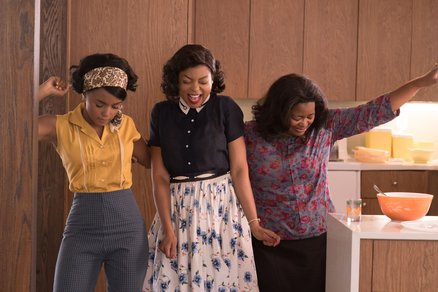
Wadjda
Curriculum links: This case study can be used for those studying 'Component 2: Global Film: Narrative, Representation and Film Style - Non- English Language Film' on the GCSE WJEC / Eduqas specification
Wadjda is a sweet, insightful and uplifting story about a young Saudi Arabian girl who steadfastly defies the social and cultural rules of her community in order to make her dreams of owning and riding a bike happen. The film is directed by Haifaa Al-Mansour, the first female director to make a film in Saudi Arabia, and offers a female perspective on life in contemporary Saudi Arabia, told from the point of a view of a young girl.
Category Request
The film arrived at the BBFC for classification with a PG category request. Although our Compliance Officers don’t have to rate a film the same as that which a film distributor requests, it’s a really helpful bit of information to have before a film screening takes place. This is because it hints at the likely strength of material that a film may contain, and is also indicative of the type of audience that the film may appeal to or be targeted at. So, in the case of Wadjda, the PG category request suggested that, though the film is not in the English language, it may have appeal for younger audiences, particularly given that Wadjda is a child protagonist.
Classification Issues
In the film’s exploration of the ways in which women and girls’ lives are affected by the cultural, religious and social norms of the country, there are lots of implied sex references, particularly to women having what would be considered ‘inappropriate’ contact with men and boys. There are ongoing references to a woman being seen in a private space with a man that is not her husband, and there’s a scene in which Wadjda agrees to pass a note from an older teenage girl to her boyfriend so that they can spend time together. In another scene, two girls are seen drawing on their ankles and get caught by their headmistress who, it’s implied, believes them to be engaging in sexual contact. Wadjda’s mother expresses concern that it may appear as if Wadjda has lost her virginity if she rides a bike, although this is only very discreetly implied in dialogue. There are also several references to adultery and to Wadjda’s dad taking a second wife.
Our Guidelines
Our Guidelines state that, in principle, ‘there is no reason why most themes, however difficult, could not be presented in a manner which allows classification at 18 or even, where suitable, at lower levels. Classification decisions are likely to be less restrictive where difficult themes are likely to be less restrictive where difficult themes are handled in a reassuring and age appropriate manner, or where there is a positive outcome’.
Why did we classify Wadjda PG?
Although the theme of gender inequality and discrimination is potentially challenging for younger audiences to understand, the film’s exploration of these issues are handled with sensitivity. The fact that the protagonist is a child means that the film presents these issues from a girl’s perspective, and therefore the audience is shielded from some of the potentially more distressing forms of discrimination and inequality that other characters in the film may face. The film is resolutely upbeat in tone and ends in a reassuring manner that not only reconciles the protagonist with her mother, but also offers hope and joy in the final frames as we see Wadjda and Abdullah riding their bikes together.
We classified the film PG with the ratings info ‘mild sex references’.
For further information about the film’s classification issues, read our ratings info.
Other case studies for films included in Component 2 on the WJEC GCSE Film Studies exam specification include An Education and Attack the Block.
Discussion points
The film is rated PG with the ratings info ‘mild sex references’. Do you agree with the rating? Would you amend the ratings info?
The film is told from a female perspective. Why do you think this is important? What does the film tell us about life for women and girls in Saudi Arabia?
Wadjda defies the wishes of many adults around her, including her mother and headteacher. In what ways does Wadjda defy the social, gender and cultural expectations imposed on her?
The central relationship in the film is between Wadjda and her mother. In what ways is their relationship tested and how would you describe their relationship by the end of the film?
Would you describe Abdullah as a champion of change? In what ways does he support Wadjda in the film?
Suggested viewing
- The Breadwinner (Nora Twomey, 2017. 12)
- Persepolis (Vincent Paronnaud, Marjane Satrapi, 2007. 12)
- He Named Me Malala (Davis Guggenheim, 2015. PG)


